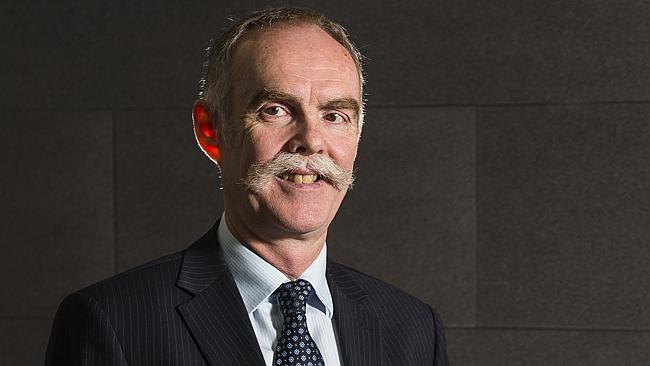Ian Silk lays it on the line: we should be doing better
(pictured: Ian Silk)
He doesn’t do it very often but when he does it invariably causes a stir. Ian Silk, the boss of Australia’s largest super fund, delivered a state-of-the-nation address to last week’s ASFA conference, calling for the industry to reassess its targets: “What we do isn’t about money, it’s about people”, he said.
In what was billed as “An Industry Oration – A Vision for a Thriving Future”, AustralianSuper’s long-standing chief executive told the annual conference in Brisbane that the superannuation industry needed to change: “We can, and should, be doing better,” he said.
“It’s simply about two things – our customers, our members, having the best shot we can give them at a comfortable life, and the confidence to take hold of it and enjoy it. So, I propose we as an industry move universally to look at our targets, our measures of success. And when we reward, reward for those two things. 
If we pay bonuses, pay bonuses based only on those two measures.
“Let’s move our industry so that it’s made up of more and more people who, rather than serve themselves, are proud to serve Australians, and grow Australia. And let’s be honest about what success looks like.
“Everyone here knows the key thing that matters is long-term net performance. We don’t kid ourselves about that but sometimes we’re willing to kid consumers.
“No-fee passive products sprouting off the back of sensationalist headlines are a prime example of what’s wrong with the system.
“Now, let me propose how we can help as many people as possible reach the ASFA comfortable standard in retirement. We need:
- policies that will generate 12 per cent superannuation savings from the average wage
- policies that address or compensate for broken work patterns, something that has a 
huge impact on women, and
- policies that encourage people to save for the long term. 
These three simple actions which, when underpinned with confidence and trust, would create a thriving future for millions of Australians.”
For the full speech (as prepared prior to delivery) click here
The conference boasted, also, an address by the new federal treasurer, Scott Morrison, who said the Government was committed to doing more to reduce superannuation fees and improve after-fee returns for members, even though super tax incentives are a cost to the government.
As an approach to deliver super tax concessions that target securing an adequate retirement income, Morrison said the Government was considering using replacement rates where income would be given as a proportion of pre-retirement earnings.
“Treasury modelling indicates that a medium income earner that is someone earning $52,000 a year – would achieve a net replacement rate of around 80 per cent under the current retirement income policy settings,” he said.
“Becoming a self-funded retiree is one of the most important objectives of any Australian. To actually achieve that in your life – to be independent in retirement – means you have choices and control of your lives,” Morrison said.
“There are four key areas that are foremost in my mind when contemplating potential superannuation tax reforms: adequate retirement incomes; stability and certainty in the retirement phase; flexibility; and an efficient tax system and economy.”










